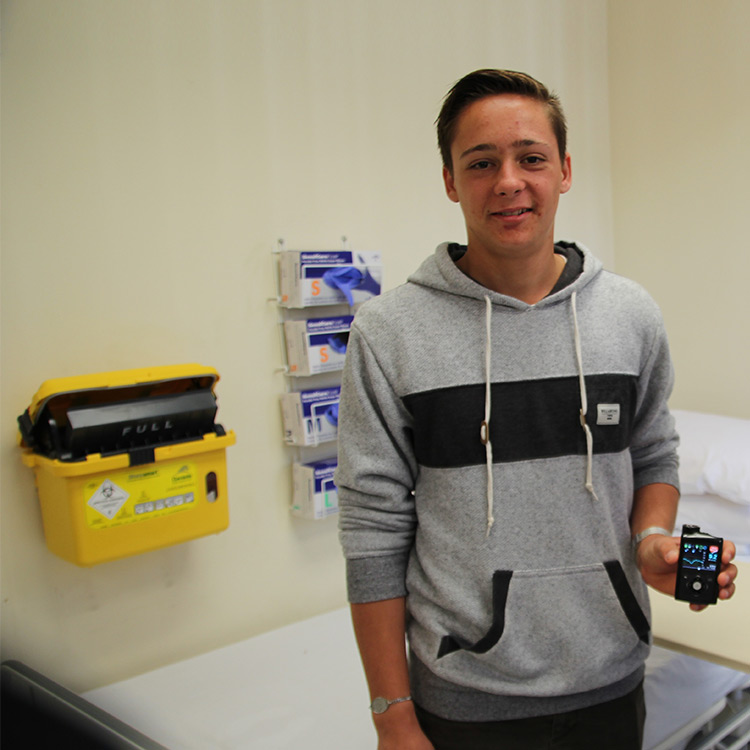Search


News & Events
Local researchers lead biggest ‘artificial pancreas’ outpatient studyThe Children’s Diabetes Centre at The Kids Research Institute Australia is leading the longest and largest at-home trial of a hybrid closed-loop insulin pump system.
Research
Parental Experiences of Having a Child Diagnosed With Septo-Optic DysplasiaSepto-optic dysplasia (SOD) is a congenital disorder affecting 1 in 10,000 births, defined by the presence of at least two of a clinical triad, consisting of optic nerve hypoplasia, midline brain defects and pituitary hormone deficiency. Children with SOD may have vision impairment, hormonal deficiencies, developmental disorders, or epilepsy, but the clinical picture is highly variable. The complexity of SOD, its interplay with family factors, and the need for multiple specialty commitments can make the diagnosis period a challenging time for families.
Research
Automated Insulin Delivery Is Associated with Reduced Hospital Admissions and Costs for Acute Diabetes Complications in Children with Type 1 DiabetesThis study evaluated the association between insulin regimen, hospitalization for acute diabetes complications, and related health care costs in children with type 1 diabetes (T1D). Hospital admissions for diabetic ketoacidosis or hypoglycemia between January 5, 2022, and April 30, 2024, were analyzed in Western Australian children with T1D. Admissions due to newly diagnosed T1D were excluded. Incidence rate ratios were calculated using generalized estimating equations, adjusted for age, diabetes duration, and socioeconomic status.
Research
Cohort profile: The WAACHS Linked Data StudyDespite the volume of accumulating knowledge from prospective Aboriginal cohort studies, longitudinal data describing developmental trajectories in health and well-being is limited.
Research
Promoting Resilience in Stress Management for Parents (PRISM-P) intervention in parents of young children with T1DKeely Amy Tim Bebbington Finlay-Jones Jones MClinPsych/PhD BPsych(Hons), MPsych(Clinical), MHealthEcon, PhD (Clin Psych) MBBS DCH FRACP MD McCusker
Research
Using co-design to understand and enhance the experiences of emerging adults with type 1 diabetes and their parents as they transition from paediatric to adult care in metropolitan and regional Western AustraliaKeely Bebbington MClinPsych/PhD McCusker Postdoctoral Research Fellow in Type 1 Diabetes 08 6319 1766 keely.bebbington@thekids.org.au McCusker
Research
Effect of Exercise Intensity on Exogenous Glucose Requirements to Maintain Stable Glycemia At High Insulin Levels in Type 1 DiabetesUnder basal insulin levels, there is an inverted U relationship between exercise intensity and exogenous glucose requirements to maintain stable blood glucose levels in type 1 diabetes (T1D), with no glucose required for intense exercise (80% V̇O2 peak), implying that high-intensity exercise is not conducive to hypoglycemia.
Research
Decreasing Trends in Mean HbA1c Are Not Associated With Increasing Rates of Severe Hypoglycemia in ChildrenThere have been concurrent improvements in HbA1c and decreasing severe hypoglycemia rates in two pediatric cohorts of type 1 diabetes
Research
Lessons from schools with high levels of support for students with type 1 diabetes: A qualitative studyThis project aimed to investigate how schools provide support for the psychosocial wellbeing and disease management of students with type 1 diabetes
